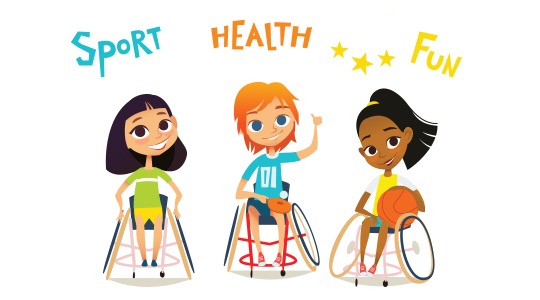Sports provide children and teenagers with more benefits than just the physical benefits of exercise. Participating in sport can help build self-esteem and confidence and motivate children to excel academically, teaching them fundamental skills including goal-setting and the benefits of practice (Livestrong).
The benefits of physical activity are also equally important for children and teenagers with a disability. According to an academic paper published in the Journal of Pediatrics, regular physical activity for children with a disability has “been shown to help in controlling or slowing the progression of chronic diseases, improving overall health and function, and mediating the psychosocial impact of the condition on children and their families.” It is important to remember that regular physical activity is important for everyone, not just those with a disability, however the supports available through the NDIS can help to achieve the benefits of sport greatly (change to can help participants achieve their goals regarding sport and fitness).
Improved Health and Strength
Sports and physical activity can be tailored to the needs of the disability to improve particular areas. For example, according to the same paper, a strength-training program for young participants with Cerebral Palsy conducted by McBurney H, Taylor NF, Dodd KJ and Graham HK.A demonstrated increased strength, improved mental well-being and better overall function. Such exercises can be delivered through the range of therapy assistance provided by Zest Care encompassing both physiotherapy and occupational therapy.
Children with Down Syndrome usually have less muscle strength than typical children. However, they showed increased exercise endurance and work capacity after participation in a specialised aerobic training program consisting of running, jumping, dancing and trampolining.
According to Down Syndrome Victoria and Down Syndrome NSW Members’ Journal, physical activity is ‘integral to a child with Down syndrome’s health, fitness and well-being.’ Not only for the development of healthy bones, motor skills and coordination but also to manage the risk of developing heart disease, depression and obesity. This is particularly important as people with Down syndrome are at higher risk of developing these conditions.
Better Self-Image
An important way in which sports participation enhances the well-being of children with disabilities is by providing a channel for them to form friendships, express creativity and develop self-identity.
Since their foundation in 1968, the Special Olympics have been an incredible platform for children and adults with intellectual disabilities to express themselves through the joy of sport. They currently have over 4.7 million athletes in 169 countries and operate under a simple ethos:
“Sports are a powerful force. Sports can shift the focus from disability to ability, from isolation to involvement.”
They also encourage inclusivity by encouraging team sport and adapting exercises to suit all capabilities. The Special Olympics Young Athletes Program is an inclusive program that facilitates sport and play activities for from the ages of 2-7 years. Typical activities include running, kicking and throwing. According to the Young Athletes program, children with intellectual disabilities who took part developed motor skills more than twice as fast as others who did not. The inclusive play element helps to bridge understanding between children with and without additional needs, helping to break down the barriers of preconceived misconceptions surrounding disability.
If you’d like to get your child or teenager involved in a sport, a great place to start is this list of resources from the NSW Office of Sport for people with a disability. Disability Sports Australia also regularly list sports activities for children including, but not limited to, rowing, sailing, swimming, volleyball and many more.
As a registered NDIS provider with over 16 years of In-Home Child Care experience, Zest Care can provide support to you and your child(ren) to both access and partake in sport and exercise programs to help achieve your goals towards improved health and well-being.
Contact us today to speak to our Participant Service Team to see how we can help you start the life you want… today!
Resources:
‘Promoting the Participation of Children with Disabilities in Sports, Recreation and Physical Activities’ (Nancy A. Murphy, Paul S. Carbone, Journal of Pediatrics May 2008, Volume 121/Issue 5)
Physical activity for children with Down syndrome (Voice, 2012)
McBurney H, Taylor NF, Dodd KJ, Graham HK. A qualitative analysis of the benefits of strength training for young people with cerebral palsy. Dev Med Child Neurol.2003;45 (10):658– 663








